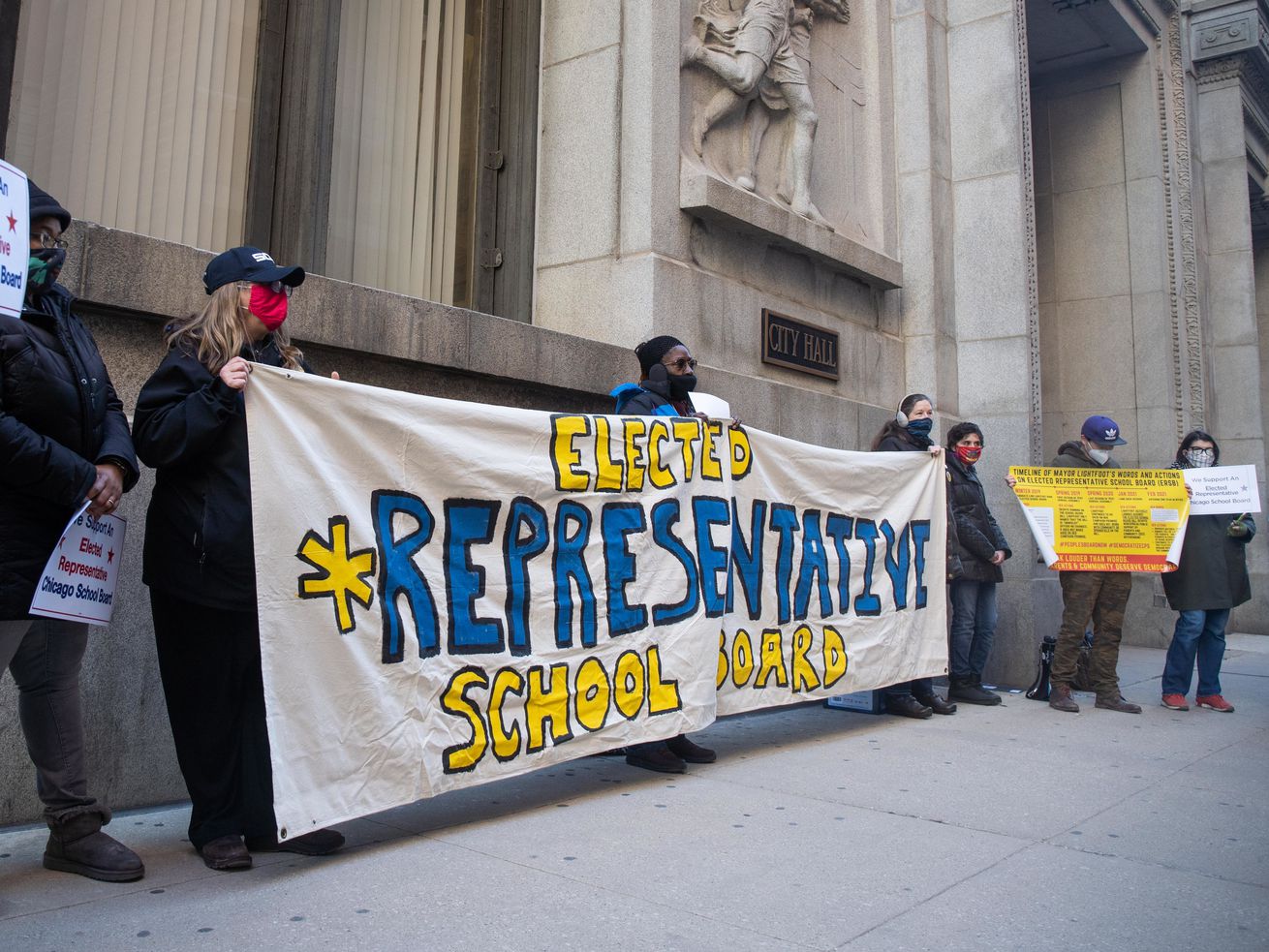
What measures were taken to ensure that property taxes won’t be hiked again by this new board?
Though many people are celebrating the passage of a bill in Springfield to create a fully elected school board for Chicago, I’m struggling with the many unanswered questions. Key among them is the question of who will the board actually represent? Will it represent the Chicago Teacher’s Union, whose members will be allowed to run for seats? Will it represent only those Chicagoans who can afford to high cost of a campaign to run for the board?
That certainly wouldn’t be a board that represents the families of the children who attend the Chicago Public Schools.
I’m also left wondering what measures will be taken to ensure that property taxes won’t be hiked again, which is one of the easiest ways for school boards to raised money. Without the guaranteed support of City of Chicago funding, there could be a $500 million hole in the school system’s budget. Surely, that burden will be passed on to taxpayers.
While the idea of an elected school board has some appeal, a bill more thoughtful than the one just passed would have had much more appeal.
Erica Salem, former CPS parent, Lakeview
SEND LETTERS TO: letters@suntimes.com. Please include your neighborhood or hometown and a phone number for verification purposes. Letters should be approximately 350 words or less.
What about rigged legislatures?
In Jacob Sullum’s recent screed of a column discussing the “dangers” of giving governors too much power during the pandemic, I missed any reference to our neighbors to the north, Wisconsin. Sullum wasn’t interested in mentioning that the opposite of this problem — a governor with strong powers — is a legislature that abuses its power. And in a politically rigged state like Wisconsin, there is simply no hope of voting the abusers out of power.
At least when you give governors power, they face a referendum each Election Day on how they used or abused that power. Just ask Bruce Rauner of Illinois.
Don Anderson, Oak Park
Decide DuSable Drive by referendum
It is understandable and commendable that a number of Chicago aldermen wish to rename Lake Shore Drive in honor of Jean Baptiste Point DuSable. Other than a high school, a museum and a few other places, DuSable is barely recognized for being the first non-indigenous resident of Chicago. Certainly, DuSable deserves better.
On the other hand, is it appropriate for the City Council to rename Lake Shore Drive, a name that is internationally recognized and loved by thousands of Chicagoans? Instead of the City Council making this call, Chicagoans themselves should decide, by referendum, whether the name should be changed.
Thomas Mackin, Rogers Park
I fell for Chicago along Lake Shore Drive
I came to the United States from Peru in the 1960s to study architecture at the University of Nebraska. One of the first things I was told to do was go to Chicago and ride along Lake Shore Drive and admire the architecture from all the world-famous architects. I did just that. And after taking that first ride, I took an architectural tour by boat in Lake Michigan — again along the route of Lake Shore Drive.
I then promised myself that after graduation I would come to Chicago to live. I would make Chicago my home.
I have now lived in the Chicago area for more than 50 years. Please do not rename Lake Shore Drive.
Robert Mendez, Glen Ellyn
Slavery persisted after Juneteenth
I enjoyed the story about Juneteenth in Friday’s paper. Very informative and inspirational. As a lifelong American, I am delighted that the end of slavery is being celebrated in an official way.
I was also delighted to see the word “portmanteau” used. Nice writing.
I thought the last two paragraphs, though, perpetuated a common misconception. Slavery remained alive and legal in certain parts of the United States until December of 1865, when the 13th Amendment took effect. The Texas slaves were among the last freed, but they were not the last, missing that mark by nearly 6 months.
Mark Anderson, Park Ridge
Throw the ball, Rodgers
Professional football is a game, but more importantly it’s a business. And it is the responsibility of a team’s management to keep that business viable by making decisions for the overall good of the organization. With that in mind, the Green Bay Packers made a decision to draft a franchise quarterback in Jordan Love out of Utah State, much to the chagrin of 37-year-old Aaron Rodgers. He’s miffed because he wasn’t involved in the hiring process.
Rodgers has to remember that he is a player, a highly paid quarterback. Management should manage, and Rodgers should throw the ball.
John Livaich, Oak Lawn
